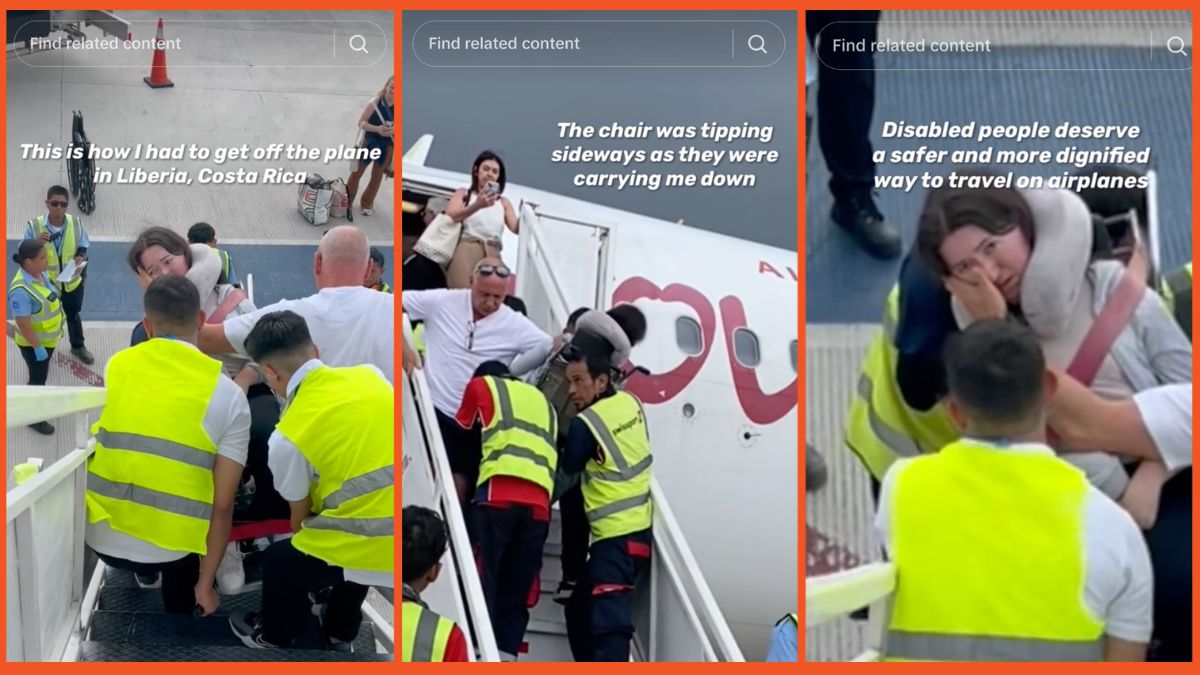It seems airlines can do no right, these days. They fail their customers on a daily basis, and no one is more jilted by the shortcomings of the airline industry that those with disabilities.
People with, in particular, physical disabilities are forced to traverse a world that often doesn’t make proper accommodations for them, and their lives are only complicated further when they travel. That’s made far worse by the lack of appropriate adjustments on flights, an ongoing issue that’s been well-documented on TikTok.
Numerous people with a range of physical limitations have taken their stories to the video-sharing app, where they present the failings of major airlines for the world to see. That’s occurring once again with the spread of TikToker Tori Hunter’s video, which showcases just how little airlines seem to have learned about accommodations for wheelchair users.
Hunter leans on her TikTok platform to showcase her life and travels as a person with spinal muscular atrophy, and she doesn’t shy away from the hard moments. Among her most recent videos is one ringing in Accessibility Awareness Day with a harsh reminder about just how far public spaces like airports and airplanes still have to go when it comes to properly serving customers with a disability.
In her video, Hunter is being carefully walked down a plane’s narrow staircase by a gaggle of airline workers. Seated in a wheelchair and looking absolutely miserable, Hunter is forced to endure an uncomfortable and distressing offloading process, and all because of a broken aisle chair.
According to Hunter, the aisle chair provided for her had “no armrests, straps that wouldn’t tighten enough to keep my body in, and front wheels that were busted off.” That made it impossible for her to enjoy any autonomy in the chair, and ultimately necessitated the unsafe and undignified exit from the plane.
As Hunter explained, the airline workers tasked with helping her were kind, but had no actual experience with assisting a wheelchair user. That made for a frightening offloading process, and one that robbed Hunter of what should have been a safe, carefree, and enjoyable experience.
The comment section of Hunter’s informative tweet is equal parts sympathy and support, but it is the messages from other wheelchair users (or family of wheelchair users) that really shine a light on the prevalence of the issue. Yes, the kind people featured in the video did their absolute best, and they deserve praise for their care and compassion, but they shouldn’t have been put in that situation in the first place. It’s notable that Hunter was disembarking from a plane at Liberia, the smallest airport in Costa Rica, which sports far less accessibility options than other airports, but the issue is in no way limited to small airports.
That’s made clear by the wave of commenters who stepped in to share their own tales of travel misfortune, largely thanks to the slow-moving accessibility improvements. Issues with accessibility are relevant on a global scale, and — while it can be easy to make judgements from a distance — the only people who properly understand the struggle are those forced to endure it. Hunter is bringing vital awareness of a prevalent issue with her video, and — with the far reaching power of TikTok — it may be enough to make a difference.

